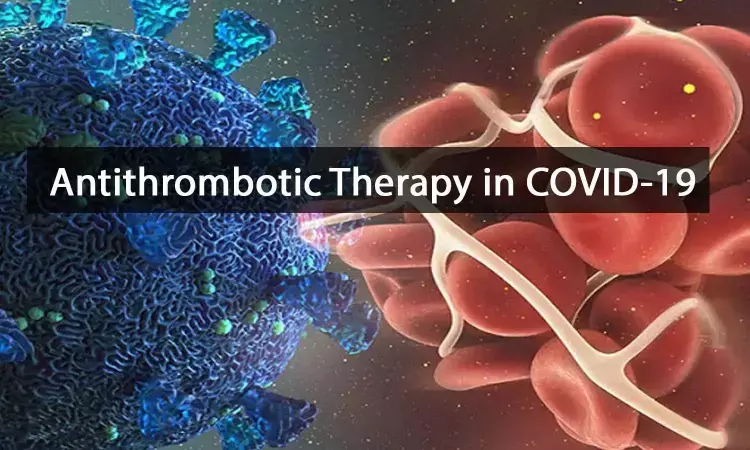- Home
- Medical news & Guidelines
- Anesthesiology
- Cardiology and CTVS
- Critical Care
- Dentistry
- Dermatology
- Diabetes and Endocrinology
- ENT
- Gastroenterology
- Medicine
- Nephrology
- Neurology
- Obstretics-Gynaecology
- Oncology
- Ophthalmology
- Orthopaedics
- Pediatrics-Neonatology
- Psychiatry
- Pulmonology
- Radiology
- Surgery
- Urology
- Laboratory Medicine
- Diet
- Nursing
- Paramedical
- Physiotherapy
- Health news
- Fact Check
- Bone Health Fact Check
- Brain Health Fact Check
- Cancer Related Fact Check
- Child Care Fact Check
- Dental and oral health fact check
- Diabetes and metabolic health fact check
- Diet and Nutrition Fact Check
- Eye and ENT Care Fact Check
- Fitness fact check
- Gut health fact check
- Heart health fact check
- Kidney health fact check
- Medical education fact check
- Men's health fact check
- Respiratory fact check
- Skin and hair care fact check
- Vaccine and Immunization fact check
- Women's health fact check
- AYUSH
- State News
- Andaman and Nicobar Islands
- Andhra Pradesh
- Arunachal Pradesh
- Assam
- Bihar
- Chandigarh
- Chattisgarh
- Dadra and Nagar Haveli
- Daman and Diu
- Delhi
- Goa
- Gujarat
- Haryana
- Himachal Pradesh
- Jammu & Kashmir
- Jharkhand
- Karnataka
- Kerala
- Ladakh
- Lakshadweep
- Madhya Pradesh
- Maharashtra
- Manipur
- Meghalaya
- Mizoram
- Nagaland
- Odisha
- Puducherry
- Punjab
- Rajasthan
- Sikkim
- Tamil Nadu
- Telangana
- Tripura
- Uttar Pradesh
- Uttrakhand
- West Bengal
- Medical Education
- Industry
Antithrombotic therapy in arterial thrombosis and thromboembolism in COVID-19: CHEST Guidelines

Glenview: The American College of Chest Physicians (CHEST) recently released a new clinical guideline on antithrombotic therapy in arterial thrombosis and thromboembolism in COVID-19. Published in the journal CHEST, the guideline contains 11 evidence-based recommendations to improve risk-evaluation and to assist in determining the course of treatment.
While there are guidelines for the management of COVID-19-related coagulopathy for venous thromboembolism (VTE), a recent large cohort study showed that COVID-19 was associated with substantially increased incidence of both VTE and arterial thromboses, including myocardial infarction and stroke.
“The new guideline provides recommendations for managing four arterial (pro)thrombotic medical conditions so that when a patient presents with COVID-19 infection either with an acute thrombotic event or a history of them, the clinician will be able to assess the risks and benefits of administering additional medication that may interact with a current antithrombotic, as well as the need for modification of current antithrombotic therapy,” says Tatjana Potpara, MD, PhD, FESC, lead author on the guideline. “By addressing these interactions and risks in a guideline, we can better prepare clinicians to make informed decisions on their treatment plan and standardize care.”
The guideline includes the conditional recommendations relating to:
1) acute coronary syndrome/percutaneous coronary intervention,
2) a history of or acute stroke or transient ischemic attack,
3) previously known or newly diagnosed atrial fibrillation, and
4) peripheral artery disease/acute limb ischemia.
The recommendations include:
In hospitalized patients with COVID-19 and confirmed acute coronary syndrome (ACS), we recommend dual antiplatelet therapy to reduce the risk of recurrent ACS or death.
In outpatients with COVID-19 receiving antiplatelet therapy for a previous stroke, we suggest against the addition of or change to oral or subcutaneous anticoagulation.
In hospitalized patients with COVID-19, not in the ICU, receiving oral anticoagulation for atrial fibrillation in whom the discontinuation of oral anticoagulation is needed during hospitalization, we suggest switching over to therapeutic dose LMWH or unfractionated heparin.
In hospitalized patients with COVID-19 and stable peripheral artery disease (i.e., no acute limb events or revascularization procedures within the past 30 days), we suggest continuation of antiplatelet therapy if concurrent prophylactic-dose anticoagulation for COVID-19 is being given.
The existing evidence and panel consensus do not suggest a major departure from the management of arterial thrombosis as per pre-COVID-19 recommendations. Data on the optimal strategies for prevention and management of arterial thrombosis and thromboembolism in patients with COVID-19 are sparse, and more high-quality evidence is needed to inform management strategies in these patients.
The entire list of recommendations included in the new guideline can be accessed through the CHEST journal website.
References: Tatjana Potpara, MD, PhD, Dominick J. Angiolillo, MD, PhD, Behnood Bikdeli, MD, MS, Davide Capodanno, Oana Cole, Angel Coz Yataco, Gheorghe-Andrei Dan, Stephanie Harrison, Jonathan M. Iaccarino, MD MS, Lisa K. Moores, George Ntaios, MD, MSc, PhD, Gregory Y.H. Lip DOI:https://doi.org/10.1016/j.chest.2023.06.032
Dr Kamal Kant Kohli-MBBS, DTCD- a chest specialist with more than 30 years of practice and a flair for writing clinical articles, Dr Kamal Kant Kohli joined Medical Dialogues as a Chief Editor of Medical News. Besides writing articles, as an editor, he proofreads and verifies all the medical content published on Medical Dialogues including those coming from journals, studies,medical conferences,guidelines etc. Email: drkohli@medicaldialogues.in. Contact no. 011-43720751


